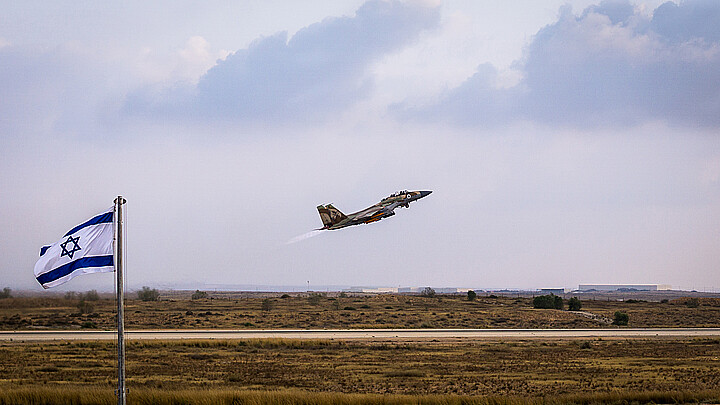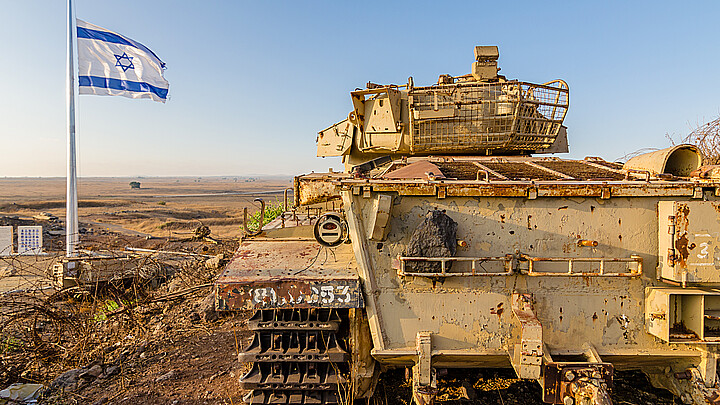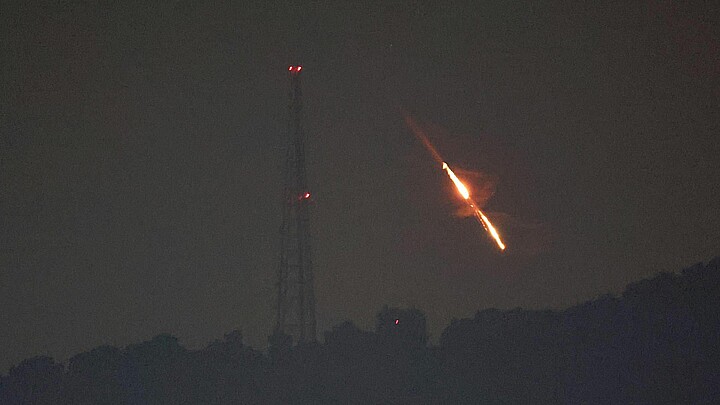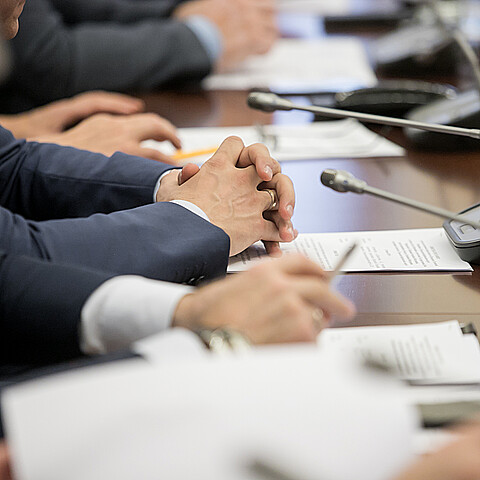Politics
Israel unites with U.S., Arab nations against Iran, revives Palestinian peace talks
Israel and some Arab nations have expressed concern over the possibility of a nuclear Iran due to the Biden administration's possible nuclear deal with Tehran
March 28, 2022 10:55pm
Updated: March 29, 2022 10:11am
Top foreign diplomats from Israel, the United Arab Emirates, Morocco, Bahrain, Egypt and the United States on Monday convened to focus on their common enemy of Iran and also to discuss peacemaking with the Palestinians.
The two-day Negev Summit took place at the burial location of Israel's founding father, David Ben-Gurion. Israel has committed to holding an expanded version of the event again, Reuters reported, as Jerusalem strengthens ties with like-minded Sunni Arab countries.
"This new architecture - the shared capabilities we are building - intimidates and deters our common enemies, first and foremost Iran and its proxies," Israeli Foreign Minister Yair Lapid said as he stood next to his counterparts from the five other countries.
Israel and some Arab nations have expressed concern over the possibility of a nuclear Iran due to the Biden administration's possible nuclear deal with Tehran.
Terrorists struck Israel on Sunday for the second time in a week, killing two 19-year-old border officers. Hamas and Islamic Jihad praised the attacks by Arab citizens that came in response to the Negev Summit.
"Israel is a strong and a proud country and will never surrender to terror. We will continue on our path, the path of peace," Lapid said, according to the U.S. Secretary of State.
"I am not alone in this. Everyone here shares this sentiment," he said. "Last night, all the foreign ministers participating in the summit condemned with one strong voice the horrific terror attack. On behalf of the people of Israel, I thank you for this."
Moroccan Foreign Minister Nasser Bourita expressed his support for Israel and said that joining with other Arab nations in Israel is "the best response to such attacks."
Bahrain's Foreign Minister Abdullatif Al Zayani said that the summit would be helpful to defend against Iranian-backed groups such as Hezbollah.
"Of course, part of this process will be renewed efforts to resolve the Palestinian-Israeli conflict," he added, Reuters reported.
Palestinian leaders were not optimistic about the talks.
"Unless the occupation ends, Arab normalisation meetings are nothing but an illusion and free reward for Israel," Palestinian Prime Minister Mohammed Shtayyeh said Monday.
U.S. Secretary of State Antony Blinken stressed the importance of returning to the 2015 Iran Nuclear deal and said the U.S. is committed to Iran not obtaining a nuclear weapon.
"The US believes that a return to full implementation of the deal is the best way to put Iran’s nuclear programme back in the box that it was in, but has escaped from since the United States withdrew from that agreement," Blinken said, The Guardian reported.
"But whether there’s a deal or not, our commitment to the core principle of Iran never acquiring a nuclear weapon is unwavering," he said. "And one way or another, we will continue to coordinate closely with our Israeli partners on the way forward."
However, one former CIA operative told the John Solomon Reports podcast earlier this month that Iran's nuclear materials are "essentially bomb-ready," and that United States is likely too late to intervene without military force.









